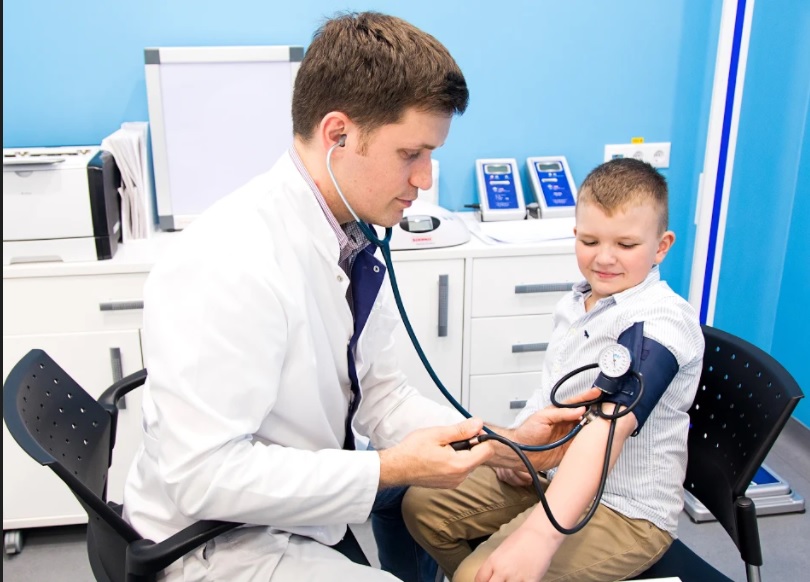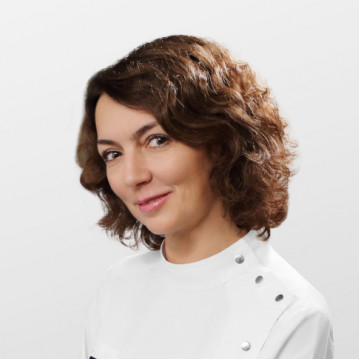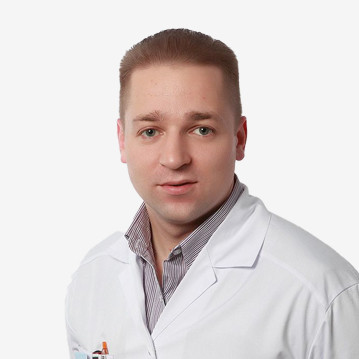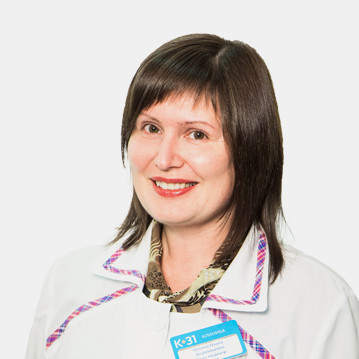
Vaccination worries many parents. Many of them are wondering if vaccinations are really necessary and what will happen if you miss them. deadline set by the national calendar or not to do them at all. In fact, vaccination is a very important factor in the formation immunity and it largely depends on how the child will endure this or that disease in the future.
What is vaccination?
Vaccination is the introduction of antigenic material into the body of a child, which allows you to form immunity (protection) against a specific disease or weaken its consequences. As antigens, live (attenuated) strains of bacteria, inactivated bacteria, purified antigens, or synthetic (i.e., artificially created) vaccines can be used. In simple words, the vaccine is designed to mimic the disease, but without any symptoms. The body must respond to it as an infection, thereby forming a protective barrier for the future.
It is recommended to start vaccination from birth. This will protect the children's body from many diseases and prevent them at an older age. According to the WHO, it is vaccination that is the main way to combat many infections. Thanks to them, it was possible not only to reduce the spread of some diseases, but also to completely eliminate some (for example, smallpox).
What is revaccination?
Some vaccines are given once in a lifetime. But there are also those that need to be applied 2 or more times in order to achieve the best effect. Revaccination is the repeated administration of a vaccine. It is relevant not only for children. Separate vaccinations should be given every 10 years (for tetanus), and some are recommended annually (influenza).
Types of vaccines
Vaccinations are mandatory and desirable. The first group includes vaccines that are included in the national calendar of preventive vaccinations for children and are delivered according to a strictly established schedule. The latter are applied at the request of parents, as well as in case of going abroad to places where outbreaks of the disease have been recorded.
Vaccines also differ in the way they are administered:
- Intramuscular. The most optimal option, because it allows the drug to quickly dissolve and effectively cope with the task. The risk of developing allergies after vaccination in this case is minimal;
- Subcutaneous. Most vaccines are delivered this way. Subcutaneous administration of the drug allows you to accurately calculate the desired dosage;
- Intradermal. Such vaccinations are placed with a thin needle in the shoulder area;
- Oral. The fastest and easiest option. The drug is instilled in the right dosage directly into the child's mouth;
- Through the nose. The same simple way that allows you to easily vaccinate even the youngest children. However, in this case, there are difficulties with the choice of dosage, since a certain part of the drug can enter the gastrointestinal tract.
Children's vaccination calendar by age
|
Age |
Disease |
Vaccination (what drugs are used) |
|
Up to 1 year |
||
|
The first day after birth |
Hepatitis B |
Euvax Regevak |
|
3-7 days |
For tuberculosis |
BCG-M |
|
1 month |
Hepatitis B (repeated vaccination) |
Euvax Regevak |
|
2 months |
Against hepatitis B (for children at risk) |
Euvax Regevak |
|
3 months |
For diphtheria, whooping cough, tetanus |
Infanrix Infanrix-hexa Pentaxim ADS, DTP |
|
Against pneumococcal infection |
Synflorix Prevenar |
|
|
For Polio |
Polymilex |
|
|
4, 5, 6 months |
Hepatitis B (repeated vaccination) |
Euvax Regevak |
|
Against diphtheria, whooping cough, tetanus |
Infanrix Infanrix-hexa Pentaxim ADS, DTP |
|
|
For Polio |
Polymilex |
|
|
Up to 3 years |
||
|
1 year |
Against measles, rubella, mumps |
Complex: MMP-II, Divaccine Mono-vaccines: Measles, Rubella, Mumps |
|
Against hepatitis B (for children at risk) |
Euvax Regevak |
|
|
1 year 3 months |
For pneumococcal infection (revaccination) |
Synflorix Prevenar |
|
1 year 6 months |
Against diphtheria, whooping cough, tetanus (revaccination) |
Infanrix Infanrix-hexa Pentaxim ADS, DPT |
|
For poliomyelitis (revaccination) |
Polymilex |
|
|
1 year 8 months |
For poliomyelitis (revaccination) |
BiVac polio Polymilex |
|
Up to 7 years old |
||
|
6 years |
Against measles, rubella, mumps |
Complex: MMP-II, Divaccine Mono-vaccines: Measles, Rubella, Mumps |
|
7 years |
For diphtheria, tetanus |
ADS, ADS-M |
|
Tuberculosis (if indicated) |
BCG-M |
|
|
Under 14 |
||
|
13 years old (girls) |
Against rubella |
Rubella, MMP-II |
|
Under 18 |
||
|
14 years old |
From diphtheria, tetanus (revaccination) |
ADS, ADS-M |
|
Tuberculosis (revaccination) |
BCG-M |
|
|
Against poliomyelitis (revaccination) |
Polymilex, Poliorix, Imovax Polio, BiVac Polio, MonoVac Polio type 2 |
|
Vaccination, as a rule, should be carried out strictly in accordance with the approved national vaccination schedule. However, if for some reason this is not possible on time, the pediatrician draws up an individual vaccination plan.
In addition to the mandatory vaccination, you can get additional vaccinations (desirable) from:
- Influenza;
- Rotavirus infection;
- Meningococcus;
- Chickenpox;
- Viral hepatitis A;
- Human papillomavirus (this virus often causes cervical cancer later in life).
Emergency vaccination should be considered separately. Based on the name, it is immediately clear that it is used in emergency cases. For example, after an animal bite, in many cases, vaccinations against rabies (a course) or injuries (against tetanus if the child has not been previously vaccinated) are indicated. You can also urgently vaccinate after contact with patients with chickenpox, measles, hepatitis. This will minimize the complications of infection.










